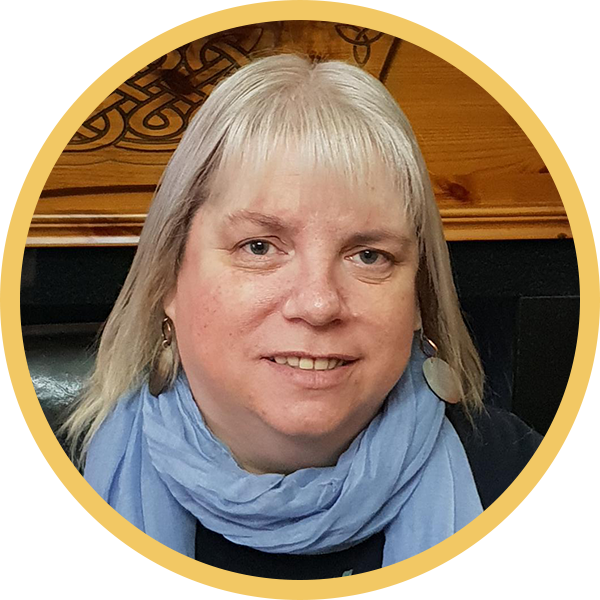Metastatic urothelial carcinoma (mUC) is a lethal malignancy with an increasing global incidence. While chemotherapy remains the treatment cornerstone, long-term survival is achieved by only a small group of patients. The evolving landscape has brought forward immunotherapy and targeted agents, reshaping the treatment paradigm, yet the increased variety of options presents a dilemma for clinicians. Selecting the right sequence, appropriately managing adverse events, and establishing effective physician-patient communication can be challenging.
New spotlight: conversation between doctor and patient with mUC
About this program
Led by Program Director Axel Merseburger, together with esteemed field experts we have designed a dynamic learning experience that is both fun, engaging, and clinically relevant.
The Ultimate mUC Challenge game and our Expert Spotlight conversations will guide you through the intricacies of optimal sequencing, effective management of adverse events, and demonstrate how to better communicate with your patients to improve outcomes.
To round it all off, a series of short Video Shots will be presented by experts as they discuss the highlights of ESMO 2024 where new data could lead to a shift in the treatment paradigm of mUC.
Be empowered as you dive into an immersive learning environment to unlock invaluable insights and practical knowledge to seamlessly integrate into your clinical practice.
Learning objectives
After participating in this program HCPs will be able to:
- Evaluate current and developing treatment options for mUC for first- and later-lines, including maintenance
- Assess efficacy and safety profiles of current and emerging agents and their potential impact on clinical practice
- Explain potential sequencing strategies, factors influencing treatment decisions, and strategies to manage adverse events associated with available and new agents
- Implement approaches to improve patient communication to build confidence regarding treatment and management choices
Meet the experts

Axel S. Merseburger
Professor of Urology and Chairman of the Department of Urology,
University Hospital Schleswig-Holstein, Campus Lübeck, Lübeck, Germany
Read more
Axel Merseburger studied medicine at Hannover Medical School, Hannover, Germany, before completing a residency in surgery and urology at the Eberhard Karls University, Tübingen, Germany, and a research fellowship at the Miller School of Medicine, Miami, FL, USA. Prior to his current role, he was Associate Professor and Professor at Hannover Medical School, and Chairman of the Department of Urology at the University of Lübeck, in Lübeck.
Professor Merseburger is trained in all aspects of open and endoscopic urology and has a specific interest in laparoscopic and robotic-assisted surgery, particularly for the management of prostate, renal and bladder cancer.
Professor Merseburger’s research activity encompasses both molecular and clinical aspects of uro-oncology, focusing on biomarkers and prognostic factors for prostate cancer, renal cell carcinoma, and transitional cell carcinoma. He is Principal Investigator in multiple phase 2 and 3 uro-oncology clinical trials. Professor Merseburger is a member of various uro-oncology organisations, is Chairman of the European Scholarship Programme (ESUP) of the European Association of Urology (EAU), and was the Chairman of the EAU Guideline Group for Lasers and Technologies.
Professor Merseburger is a reviewer and editorial board member for several urology and oncology journals, and serves as Associate Editor of the World Journal of Urology and Editor-in-Chief of the European Journal of Haematology and Oncology and Aktuelle Urologie. He has published widely in the field, having authored or co-authored over 300 peer-reviewed articles.
Disclosures
Professor Merseburger has received honoraria or consultation fees from: AstraZeneca, Astellas, Bayer, Bristol-Myers Squibb, Eisai, EUSAPharma, Ferring Ipsen, MedUpdate, MSD, Merck Serono, Janssen, Pfizer, Takeda, Novartis, Recordati and Roche.
All relevant financial relationships have been mitigated.

Thomas Powles
Professor of Urology Cancer,
University of London, UK
Read more
Thomas Powles is a Professor of urology cancer at the University of London and the Director of Barts Cancer Centre, which is one of the UK’s largest Cancer Centres. He trained as in Oncologist at Imperial College. His MD thesis from the University of London was on mechanisms of resistance to systemic therapy in urology cancer. He has had a major role in the development biomarkers and new drug strategies in urology cancer. This includes multiple EMA and FDA approvals.
Disclosures
Thomas Powles discloses honoraria and/or consultation fees from AstraZeneca, BMS, Exelixis, Incyte, Ipsen, Merck/MSD, Novartis, Pfizer, Seattle Genetics, Merck Serona, Astellas, Johnson & Johnson, Eisai, Roche, Mashup, and Gilead. He has received grants and/or research support from AstraZeneca, Roche, BMS, Exelixis, Ipsen, Merck/MSD, Novartis, Pfizer, Seattle Genetics, Merck Serono, Astellas, Johnson & Johnson, and Eisai. He has held a strategic advisory role with AstraZeneca, Roche, BMS, Exelixis, Ipsen, Merck/MSD, Novartis, Pfizer, Seattle Genetics, Merck Serono, Astellas, Johnson & Johnson, Eisai, and been a principal investigator for Novartis, Pfizer, AstraZeneca, Roche/Genentech, Eisai. He has also been the recipient of travel and accommodation support from Roche, Pfizer, MSD, AstraZeneca, Ipsen, Gilead, Astellas, and MSD.
All relevant financial relationships of the Faculty have been mitigated.

María José Juan-Fita
Associate Professor of Medical Oncology,
CEU Cardenal Herrera University in Valencia, Spain
Read more
María José Juan-Fita has been Associate Professor of Medical Oncology at the CEU Cardenal Herrera University in Valencia, Spain for the past five years, and is a medical oncologist in the Genitourinary Uro-oncology Unit of the Medical Oncology Department at the Hospital Instituto Valenciano de Oncologia in Valencia.
She studied for her medical degree at the Universidad de Valencia in 2005, where she also completed her PhD in 2015 receiving the highest commendation.
In 2009, María José Juan-Fita completed a three-month fellowship in genitourinary tumours at the Memorial Sloan Kettering Cancer Center in New York, USA.
Disclosures
Dr María José Juan–Fita has received honoraria or consultation fees from Janssen, Astellas, BMS, Novartis, Pierre-Fabre, Bayer and MSD.
All relevant financial relationships have been mitigated.

Enrique Grande
Director of the Medical Oncology Program and Clinical Research lead,
MD Anderson Madrid International Cancer Center, Spain
Read more
Dr Enrique Grande, MD, PhD, MSc, was recently appointed as Director of the Medical Oncology Program and Clinical Research lead at the MD Anderson Madrid International Cancer Center. His research focuses on Genitourinary and Endocrine tumors and he actively collaborates in the development of the Translational Research and Early Drug Development Unit. Dr Grande was awarded his PhD for a pharmacokinetic and pharmacodynamic study of tyrosine kinase inhibitors in liver metabolism, and he holds a Master’s degree in the molecular biology of cancer from the Spanish National Cancer Research Centre (CNIO). A published author of more than 150 manuscripts in peer-reviewed journals, Dr Grande is also the founder of the Spanish group for research on orphan and uncommon tumours (GETHI). Dr Grande is Professor at the Francisco de Vitoria University and editor of several international journals. He participated in recent trials in the field of bladder cancer that led to approval of the new drugs we now have available and chairs the steering committee of the IMVIGOR 130 trial.
Disclosures
Dr Enrique Grande has received honoraria or consultation fees from Adacap, AMGEN, Angelini, Astellas, Astra Zeneca, Bayer, Blueprint, Bristol Myers Squibb, Caris Life Sciences, Celgene, Clovis-Oncology, Eisai, Eusa Pharma, Genetracer, Guardant Health, HRA-Pharma, IPSEN, ITM-Radiopharma, Janssen, Lexicon, Lilly, Merck KGaA, MSD, Nanostring Technologies, Natera, Novartis, ONCODNA (Biosequence), Palex, Pharmamar, Pierre Fabre, Pfizer, Roche, Sanofi-Genzyme, Servier, Taiho and Thermo Fisher Scientific.
All relevant financial relationships have been mitigated.

Alison Birtle
Consultant Clinical Oncologist, Rosemere Cancer Centre, Lancashire, and Honorary Clinical Professor, University of Manchester & The University of Central Lancashire, UK
Read more
Alison Birtle is a Consultant Clinical Oncologist at the Rosemere Cancer Centre, Lancashire Teaching Hospitals, Honorary Clinical Professor in the Faculty of Biology, Medicine & Health at the University of Manchester and Honorary Clinical Professor at The University of Central Lancashire, specialising in the treatment of urological cancers. She is advisor to Macmillan on patient information for prostate, bladder and testicular tumours, Trustee and medical advisor to Fight Bladder Cancer and Secretary to the British Uro-oncology Group. She has been Chair of the NIHR Bladder/renal Research Group, member of ESMO Educational Faculty, and in 2022 joined the EAU Guidelines Group on UTUC and NMIBC.
She has published widely and lectures nationally and internationally. Prof. Birtle has been Clinical Research Lead for Lancashire and South Cumbria Cancer Research Network, Speciality Group Lead for Cancer Research for Northwest Coast Clinical Research Network. and Group Lead for Cancer, Surgery, Oral/Dental, and haematology for Northwest Coast CRN.
Professor Birtle has been Principal Investigator and Chief Investigator on numerous urological clinical trials notable Chief Investigator on the practice changing POUT trial. In 2018, she was awarded one of the national 70 stars of the NHS award by NHS England and the NHS Confederations and has won numerous prestigious awards including Researcher of the year Northwest Coast Health & Innovation Awards. She is a passionate advocate of clinical equipoise in studies and the mantra of ” a trial for every patient”. She combines work with an enthusiasm for singing and performing musical theatre and love of rugby, cricket and Preston North End Football team.
Disclosures
Professor Alison Birtle has received speaker fees from Bayer, Janssen, Roche, Astellas, Merck, and Pfizer; consulting fees from Johnson &Johnson, Astellas, Macrogenics, Bayer, and Merck. She has received educational support and travel from Janssen and Bayer; and on advisory boards for Janssen, Bayer, MSD, Roche, Merck, Novartis accelerated applications, AstraZeneca, Pfizer, Gilead, BMS, and Astellas. She is on the EAU Guidelines Group NMIBC UTUC, Secretary of the British Uro-oncology Group, and Trustee and medical advisor to Fight Bladder Cancer.

Petros Grivas
Professor, University of Washington, Fred Hutch Cancer Center, USA
Read more
Petros Grivas is board-certified medical oncologist with vast experience and high expertise in genitourinary (GU) cancers. He is the Clinical Director of the GU Cancers Program and Professor at the Dept. of Medicine, Division of Hematology Oncology, University of Washington and at the Clinical Research Division at Fred Hutchinson Cancer Center.
Dr Grivas received M.D. and Ph.D. in Greece in 2005 and 2009, respectively. He completed Internal Medicine Residency at Hahnemann University Hospital/Drexel University College of Medicine (Philadelphia) in 2010, and Hematology/Oncology Fellowship at University of Michigan (Ann Arbor) in 2013. He was Clinical Lecturer before he was recruited as an Assistant Professor at Cleveland Clinic (Cleveland). He has had main role in several clinical trials leading to FDA approval of new drugs for urothelial cancer.
Dr Grivas is considered a key opinion, thought leader and international expert, giving lectures in several countries, educating oncologists and other healthcare providers, mentoring numerous trainees, leading large innovative clinical trials, reviewing grant proposals and manuscripts, and publishing novel and important research. He is dedicated to personalized and outstanding patient care, efficient clinical operations, and believes in optimal patient-physician relationship as well as community outreach.
Disclosures
Petros Grivas has received honoraria and/or consulting fees from Aadi Bioscience; Abbvie, AstraZeneca; Asieris Pharmaceuticals, Astellas Pharma, Bicycle Therapeutics, Bristol-Myers Squibb; CG Oncology; Fresenius Kabi, G1 Therapeutics; Gilead; ImmunityBio; Janssen; Merck KGaA; MSD; Pfizer; Roche, Strata Oncology, and Replimune.
On behalf of his institution he has received research funding from Acrivon Therapeutics; ALX Oncology; Bristol-Myers Squibb; Merck KGaA; MSD; Genentech, Gilead; G1 Therapeutics; Mirati Therapeutics; and QED Therapeutics.

Robert Jones
Professor of Clinical Cancer Research and Honorary Consultant Medical Oncologist,
University of Glasgow, Scotland
Read more
Rob Jones is Professor of Clinical Cancer Research at the University of Glasgow and a Consultant medical oncologist at the Beatson West of Scotland Cancer Centre. His background includes a molecular biology PhD at the CRUK Beatson Institute and time spent working in Pharmaceutical Research and Development. His clinical practice is the medical management of cancers of the prostate and bladder. His research commitments include the management of a portfolio of phase I, II and III trials. He is director of the Glasgow Oncology Clinical Trials Unit, and head of the Cancer Clinical Trials Unit for Scotland collaboration (CaCTUS). He is a past chair of the UK NCRI Bladder and Renal Cancer Research Group and the Advanced Prostate Cancer subgroup.
Disclosures
Rob Jones has received grants/research support from Astellas, AstraZeneca, Bayer, and Clovis. He has received honoraria or consultation fees from Astellas, AstraZeneca, Bayer, BMS, Gilead, Ipsen, Janssen, Merck Serono, MSD, Novartis, and Pfizer.
He has also participated in company sponsored speaker bureaus for Astellas, Bayer, BMS, Ipsen, Janssen, Merck Serono, MSD.

Anna Thomson
Patient
Read more
My name is Anna Thomson, aged 58, a retired admin officer/clerk of court for the Scottish Court and Tribunal Service. I am mum to 2 daughters, one 25-year-old who is a nurse in the local ICU unit and a 30-year-old at University studying midwifery. I also have kinship care of my 15-year-old niece since 2016 after her father passed away at 46 from pancreatic cancer. I was diagnosed with urethral cancer in January 2019 and had a tumour removed and thereafter completed a chemotherapy course. The cancer returned in 2020 where a C.T. scan showed metastasized cancer in my lung which cannot be removed. My cancer is managed with Immunotherapy for the time being and recently also Radiotherapy alongside the Immunotherapy. which alleviated some symptoms I was experiencing. I remain positive and have hope for some more precious family time.
Disclosures
Anna Thomson has no disclosures.
